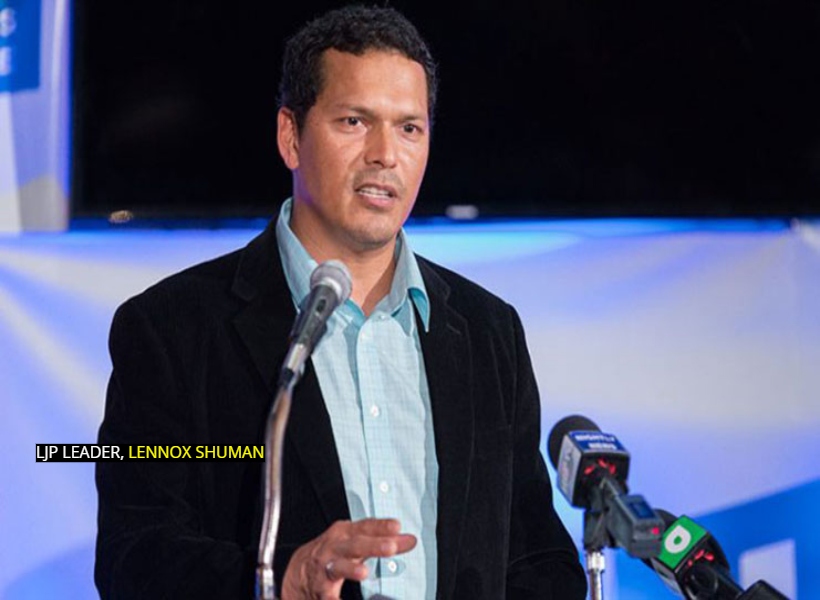Minister Charles Ramson recently boasted of being on the A-team as he asserted that his government’s version of the Natural Resource Fund Legislation, “is far (more) superior technically and from an accountability and transparency standpoint,” than that which was provided by the APNU+AFC.
The Minister of Culture, Youth and Sport, who has a Master’s degree in Oil and Gas Enterprise Management from the University of Aberdeen, pointed this out yesterday at a press conference where he was accompanied by five other ministers including the Minister of Finance, Dr. Ashni Singh.
Ramson told the media that the PPP/C government has stripped APNU+AFC’s bill of its many imperfections, kept the good features, and added several other layers of protection for the sake of good governance.
Ramson pointed to the added Board of Directors which is a feature born out of the will to confirm with the Santiago Principles. In addition to the Board of Directors, Ramson noted that a nine-man oversight committee is in place. “So, when the APNU says we removed the oversight committee, that is false.”
Ramson said that his government was keen to remove the opaqueness of the fiscal rule that was featured in APNU+AFC’s version of the Bill. He stressed that oversight of the fund from the citizenry is key. Ramson added that the masses would have been unable to provide proper oversight if the fiscal rule that governs withdrawal cannot be understood.
He said that with the simplified fiscal rule instituted by the PPP/C government, it will allow the masses to understand exactly how much should be withdrawn and under what circumstances.
Ramson added that an important feature of the new bill is that the fiscal rule is not based on future projections but on the revenue of the previous year. He said that this will allow the fund to be used in a sustainable way.
Minister Ramson recalled that many oil economies experience serious problems when their budgetary support from the fund is based on projected production and oil prices. The Minister said this is sometimes the case because of the volatility of the sector. Prices for oil tend to fluctuate and, there is always the possibility of mechanical issues with FPSOs which can lead to reduced production.
Ramson said, “If your target or projections are off, you fall into a huge deficit in providing the revenues to support and implement your budget. That is a common problem in oil producing countries. Ours (fiscal rule) is based on the previous year’s take. It gives us the assurance of knowing what we have.”
Ramson added, “Then we have the assurance of using a scaled method for withdrawal to ensure there is still intergenerational equity being saved.”













